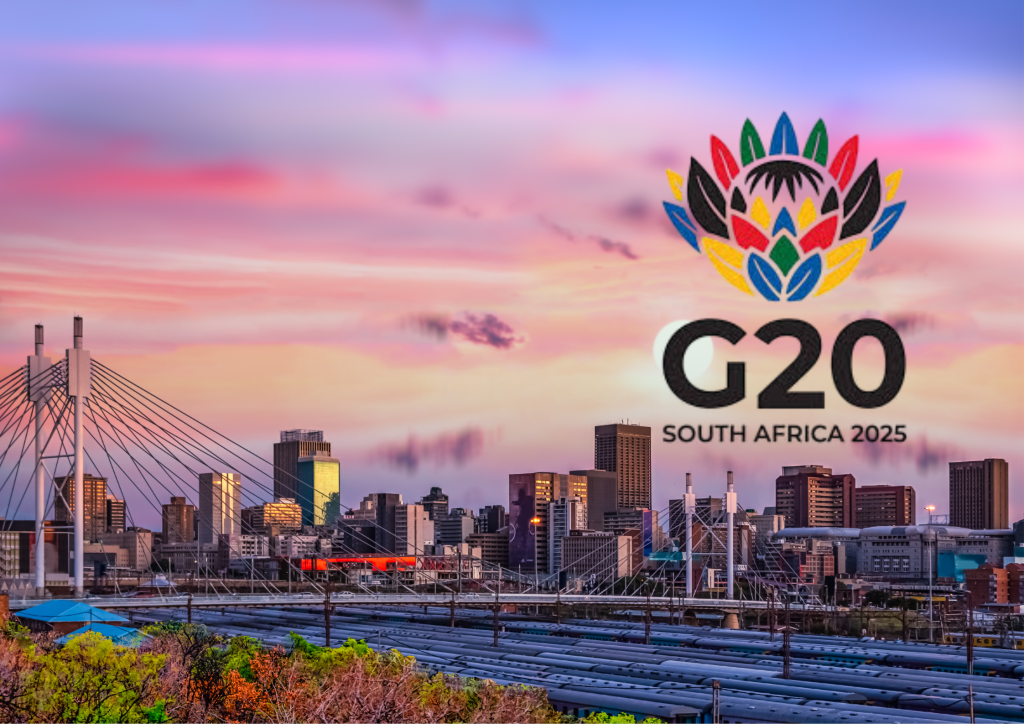For weeks, Johannesburg residents have watched the city scramble into action for the G20. Grass is cut, streets swept, potholes patched, highway lights suddenly blazing on routes that have been dark for years. It has fuelled a very legitimate anger: why only now? Why does it take visiting global leaders for our own city to act as if its residents matter?
I share that frustration. The criticism of the G20 – its cost, its timing, and the sense that service delivery is reserved for VIP motorcades – is not manufactured. It is rooted in years of neglect and broken promises. But I also think we would be making a mistake if we dismissed this summit as nothing more than an elite photo opportunity.
Despite all the political noise, the G20 is, in fact, a net positive for Johannesburg – if we use it properly.
One of the city’s deepest problems has been the lack of sustained, high-level focus on the basics: water, power, roads, safety, cleanliness. The G20 has changed that, at least for a time.
The summit has:
-
Put the executive mayor and his leadership team under intense national and international scrutiny.
-
Forced Gauteng and the national government to find money and political will for urgent upgrades.
-
Exposed, in the harshest possible light, just how fragile and uneven our infrastructure really is.
That ‘hyper focus’ is uncomfortable for political leaders – and that is precisely why it is valuable for residents. Deadlines are real. Embarrassment is real. International media is real. Those conditions tend to unblock projects that have been stuck in planning, budget fights or procurement red tape for years.
It is about pressure and consequence. Sometimes that is exactly what unlocks long-delayed decisions.
Because of the G20, the South African government made R700 million available for the event last year, and an additional R100 million was allocated in the 2025 Medium-Term Budget Policy Statement by Finance Minister Enoch Godongwana last week.
We still do not know exactly how much the Gauteng government has contributed, how the City of Johannesburg has redeployed its own resources, or how other agencies and departments – such as the Department of Public Works through its Expanded Public Works Programme – have stepped up. But we can be certain something has shifted. The details will emerge in the post-event analysis.
The challenge now is simple: we must insist that what is being fixed for the G20 stays fixed for us, and is quickly built upon.
Every newly working traffic light, every re-lit highway, every cleaned-up precinct, every security plan tested this week becomes a benchmark. Residents can now see exactly how quickly things can move when there is political will, clear deadlines and real coordination between city, provincial and national authorities.
After the summit, we should not let leaders off the hook when they claim ‘there is no money’ or ‘these things take time’. The G20 has just proven that, when it really matters, money can be found and time frames can be shortened.
No one is pretending this is on the scale of the 2010 FIFA World Cup. But like any major event, the G20 will leave a lingering legacy – good or bad, depending on what we do next.
A positive legacy looks like this:
-
Highway and arterial-route lights that stay on – not just for convoys, but for night-shift workers, ordinary drivers and pedestrians.
-
Streets that remain clean because new waste management patterns and contracts are maintained, not abandoned.
-
A heightened focus on safety and security that extends beyond VIP zones to townships, suburbs and informal settlements.
-
A city leadership that understands ‘world-class’ should not be a temporary costume, but a daily standard.
For a brief moment, some parts of Johannesburg are going to look and feel genuinely world-class. That matters. It creates a concrete, lived example of what we should be demanding for all regions of the city – not just the routes used by delegates and world leaders.
It is easy – and emotionally satisfying – to write off ‘the municipality’ as if it were a single, indifferent blob. But that is not the full story.
There are plenty of capable, committed people working for and with the City of Johannesburg: engineers, planners, technicians, cleaners, waste workers, metro police, administrators. Many of them live in the same neighbourhoods we do. They, too, want a clean, safe, affordable city.
Our city may be overrun by political interference, chaotic or unstable leadership, unclear priorities and procurement failures. But the G20 preparations, for all their flaws, have given some of these professionals the space and urgency to do the work they know needs to be done.
From where I sit, if we organise, monitor and keep up the pressure, this G20 can be remembered as more than an expensive photo opportunity. It can be the moment when a fragile, frustrated city caught a glimpse of the Johannesburg it could be – and refused to accept anything less.
Written by Julia Fish, JoburgCAN Manager.

